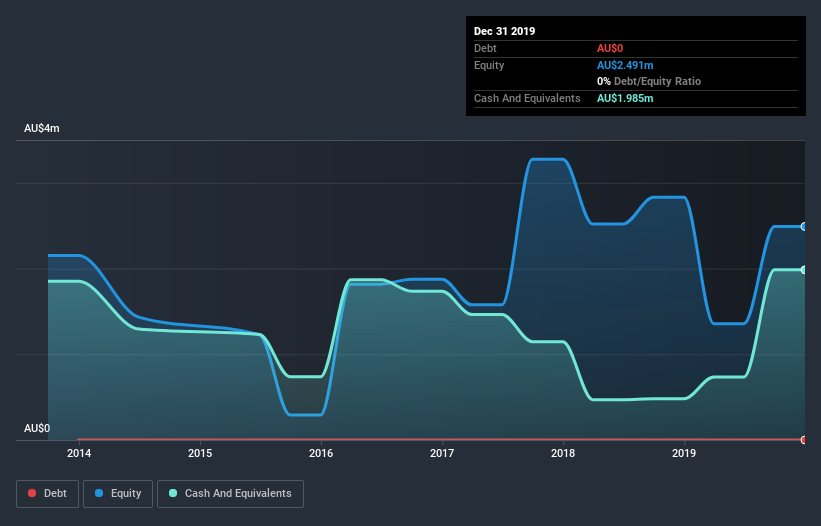RareX (ASX:REE) Has Compensated Shareholders With A 21% Return On Their Investment

This week we saw the RareX Limited (ASX:REE) share price climb by 18%. But if you look at the last five years the returns have not been good. You would have done a lot better buying an index fund, since the stock has dropped 72% in that half decade.
See our latest analysis for RareX
RareX hasn't yet reported any revenue, so it's as much a business idea as an actual business. We can't help wondering why it's publicly listed so early in its journey. Are venture capitalists not interested? So it seems that the investors focused more on what could be, than paying attention to the current revenues (or lack thereof). It seems likely some shareholders believe that RareX will find or develop a valuable new mine before too long.
Companies that lack both meaningful revenue and profits are usually considered high risk. There was already a significant chance that they would need more money for business development, and indeed they recently put themselves at the mercy of capital markets and raised equity. So the share price itself impacts the value of the shares (as it determines the cost of capital). While some companies like this go on to deliver on their plan, making good money for shareholders, many end in painful losses and eventual de-listing. RareX has already given some investors a taste of the bitter losses that high risk investing can cause.
RareX only just had cash in excess of all liabilities when it last reported. So it is a good thing that the company has looked to remedy the situation by raising more capital recently. With that in mind, you can imagine there may be other factors that caused the share price to drop 11% per year, over 5 years. The image below shows how RareX's balance sheet has changed over time; if you want to see the precise values, simply click on the image.
Of course, the truth is that it is hard to value companies without much revenue or profit. What if insiders are ditching the stock hand over fist? It would bother me, that's for sure. It costs nothing but a moment of your time to see if we are picking up on any insider selling.
What about the Total Shareholder Return (TSR)?
Investors should note that there's a difference between RareX's total shareholder return (TSR) and its share price change, which we've covered above. Arguably the TSR is a more complete return calculation because it accounts for the value of dividends (as if they were reinvested), along with the hypothetical value of any discounted capital that have been offered to shareholders. RareX hasn't been paying dividends, but its TSR of 21% exceeds its share price return of -72%, implying it has either spun-off a business, or raised capital at a discount; thereby providing additional value to shareholders.
A Different Perspective
We're pleased to report that RareX shareholders have received a total shareholder return of 48% over one year. That gain is better than the annual TSR over five years, which is 3.9%. Therefore it seems like sentiment around the company has been positive lately. Someone with an optimistic perspective could view the recent improvement in TSR as indicating that the business itself is getting better with time. I find it very interesting to look at share price over the long term as a proxy for business performance. But to truly gain insight, we need to consider other information, too. Case in point: We've spotted 6 warning signs for RareX you should be aware of, and 3 of them are concerning.
If you like to buy stocks alongside management, then you might just love this free list of companies. (Hint: insiders have been buying them).
Please note, the market returns quoted in this article reflect the market weighted average returns of stocks that currently trade on AU exchanges.
This article by Simply Wall St is general in nature. It does not constitute a recommendation to buy or sell any stock, and does not take account of your objectives, or your financial situation. We aim to bring you long-term focused analysis driven by fundamental data. Note that our analysis may not factor in the latest price-sensitive company announcements or qualitative material. Simply Wall St has no position in any stocks mentioned.
Have feedback on this article? Concerned about the content? Get in touch with us directly. Alternatively, email editorial-team@simplywallst.com.

 Yahoo News
Yahoo News 

